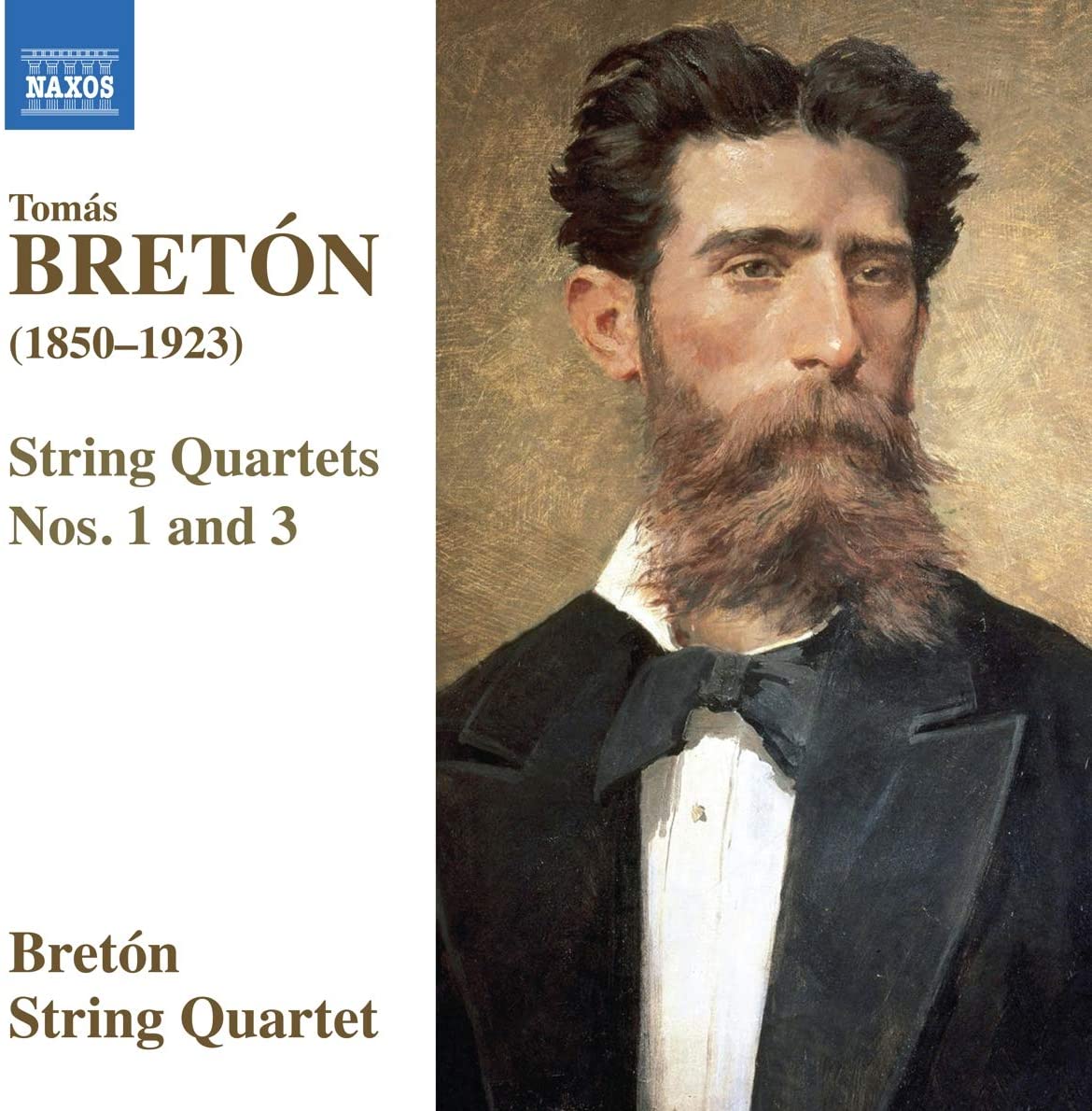BRETÓN String Quartets Nos 1 & 3
View record and artist detailsRecord and Artist Details
Genre:
Chamber
Label: Naxos
Magazine Review Date: 07/2020
Media Format: CD or Download
Media Runtime: 61
Mastering:
DDD
Catalogue Number: 8 573037

Tracks:
| Composition | Artist Credit |
|---|---|
| String Quartet No 3 |
Tomás Bretón, Composer
Bréton String Quartet |
| String Quartet No 1 |
Tomás Bretón, Composer
Bréton String Quartet |
Author: Peter Quantrill
Tomás Bretón trained as a violinist at the Conservatoire in Madrid during the 1860s and spent a brief but formative period in Vienna. Beethoven remained the obvious model to emulate when he returned to the quartet medium in 1904 for the first time since a long-discarded student effort. Bretón may have been better acquainted with the quartet heritage on paper than under his fingers – he had in any case swapped bow for baton long before – but he wrote inside the medium with confidence.
There is more than a flavour of late Beethoven to the angular contours of melodies in both quartets here – Brahms, too, in contrasting lyrical passages, such as the pizzicato-accompanied second theme of the D major First Quartet’s spacious opening movement, as well as its melancholy Andante. Some contrived modulations and spicy cadences hint at national flavours of which Bretón makes a main dish in the third movements. In fact he rescored the Third Quartet’s Allegro no mucho as a Scherzo andaluz for piano trio, thereby accentuating its percussive rhythms, but the First Quartet’s Scherzo also lets in plenty of Andalusian sunshine.
Bretón’s development as a quartet composer is most strikingly evident in the contrasting finales – a slow introduction, textbook fugue and overworked coda after Haydn in the First, over-reliant on models which he abandons in the Third for the kind of dance so adroitly adapted by Bizet when writing Carmen. With a Naxos album of less accomplished quartets by Guridi to their credit, the Bretón Quartet perform the music of their namesake with intense sympathy in a close but warm ambience, prizing momentum over strict accuracy. There are points, such as the Third Quartet’s searching Andante, when a more sensuous sound and less rough-and-ready approach would have been welcome, but their work in reviving chamber music from the overlapping eras of alhambrismo and modernismo leads me to hope for more discoveries from the same source.
Discover the world's largest classical music catalogue with Presto Music.

Gramophone Digital Club
- Digital Edition
- Digital Archive
- Reviews Database
- Full website access
From £8.75 / month
Subscribe
Gramophone Full Club
- Print Edition
- Digital Edition
- Digital Archive
- Reviews Database
- Full website access
From £11.00 / month
Subscribe
If you are a library, university or other organisation that would be interested in an institutional subscription to Gramophone please click here for further information.




